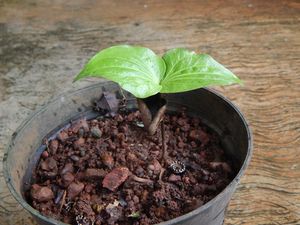Note: This is a project under development. The articles on this wiki are just being initiated and broadly incomplete. You can Help creating new pages.
Difference between revisions of "Brosimum guianense - Kochila"
Chaithrika (talk | contribs) |
Chaithrika (talk | contribs) |
||
| Line 9: | Line 9: | ||
Strychnos is promoted within alternative medicine as a treatment for many conditions, but the claims are not supported by medical evidence. | Strychnos is promoted within alternative medicine as a treatment for many conditions, but the claims are not supported by medical evidence. | ||
| + | ==Common name== | ||
| + | |||
| + | * '''English''' - Snake-wood | ||
| + | *'''Kannada''' - ಹೆಮುಷ್ಟಿ | ||
| + | * '''Hindi''' - kucchla | ||
== References == | == References == | ||
Revision as of 10:47, 4 March 2017
The strychnine tree (Strychnos nux-vomica L. [1]), also known as strychnine tree, nux vomica, poison nut, semen strychnos and quaker buttons, is a deciduous tree native to India, and southeast Asia. It is a medium-sized tree in the family Loganiaceae that grows in open habitats. Its leaves are ovate and 2–3.5 inches (5.1–8.9 cm) in size.
It is a major source of the highly poisonous, intensely bitter alkaloids strychnine and brucine, derived from the seeds inside the tree's round, green to orange fruit.The seeds contain approximately 1.5% strychnine, and the dried blossoms contain 1.0%. However, the tree's bark also contains brucine and other poisonous compounds.
Nervous, Paralysis, healing wound.
Strychnos is promoted within alternative medicine as a treatment for many conditions, but the claims are not supported by medical evidence.
Common name
- English - Snake-wood
- Kannada - ಹೆಮುಷ್ಟಿ
- Hindi - kucchla
